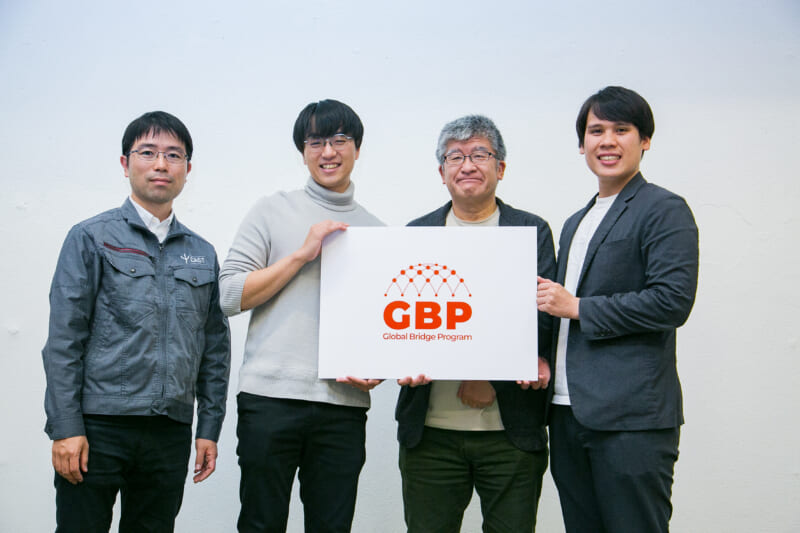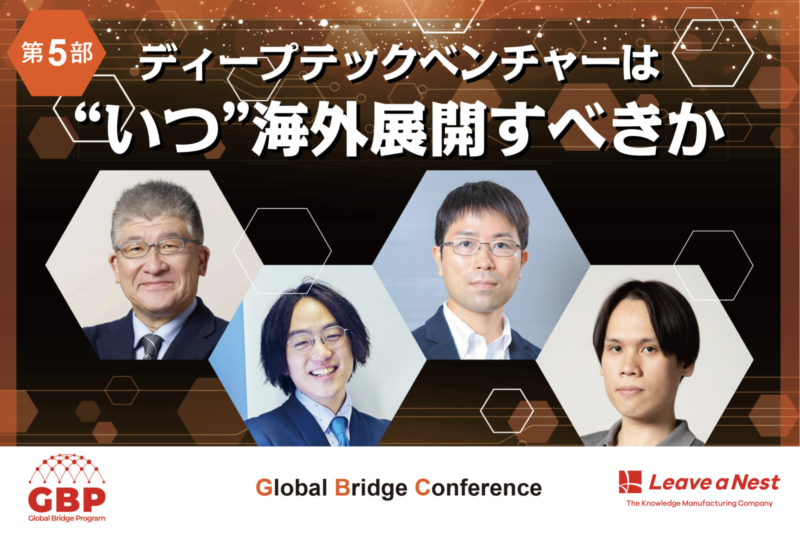
Deep tech ventures solve complex problems around the world. Some of these ventures are expanding overseas in order to grow their business, but there are many things that need to be addressed, such as establishing a local subsidiary and developing a client base. In this session, we will introduce the points that deep-tech ventures need to pay attention to when expanding overseas and the know-how that they have gained by actually doing so, through case studies of companies that have actually expanded overseas. The session will also include a presentation of the know-how gained by companies that have actually expanded overseas.This article is based on a session conducted at the Global Bridge Conference 2024 (December 10, 2024).
Aiming to resolve issues in each business area
flatland mound This session is titled "When Should Deep Tech Ventures Expand Overseas? and will be entitled "When Should Deep Tech Ventures Expand Overseas?
To address this theme, we invited a number of deep-tech ventures that are developing their business overseas.INOCA CorporationMr. Yota Takakura, CEO ofCAST CorporationKei Nakatsuma, President and Representative Director ofZip Infrastructure CorporationI would be happy to share my views with Mr. Levonquin Mario Ian Carlos Ferido ("Mario"), President of Levonquin, Inc.
By the way, I am late to introduce myself, but I worked for the Ministry of Economy, Trade and Industry until July 2024, where I was in charge of trade strategy and regional policy. I am currently a member of an independent fund. The fund has about 1.4 trillion yen in assets under management and a very large client base of about 1.4 million people, and we also manage venture capital ("VC").
Returning to the main topic, please begin by introducing yourself and telling us how you came to expand overseas. After that, let's share the challenges you faced in making inroads into the market. Let's start with you, Mr. Takakura.
ancient log storehouse My name is Takakura of INOCA. We are developing "environmental transfer technology" to reproduce various marine environments such as coral reefs, seaweed beds, and mangrove forests in an aquarium in an attempt to overcome the serious situation of the oceans, such as the decrease of coral reefs and seaweed beds.
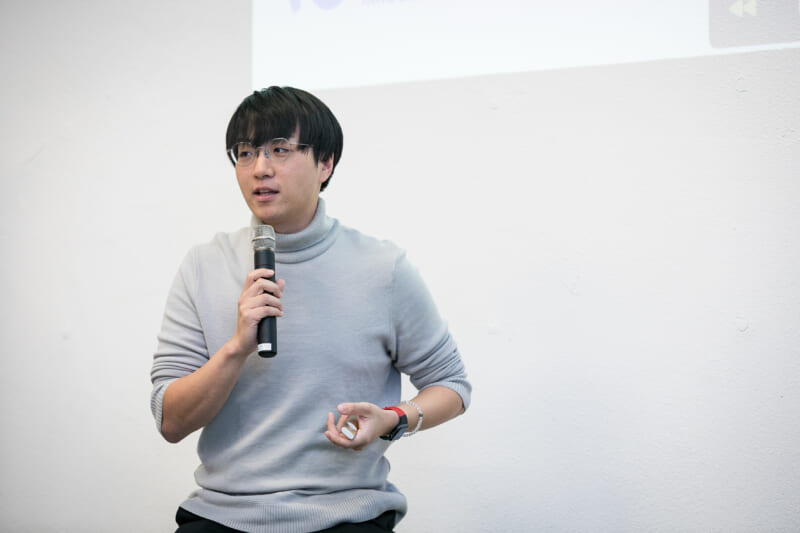
Mr. Yota Takakura CEO and Representative Director, INOCA Corporation Graduated from the University of Tokyo's Faculty of Engineering, and conducted research in the Junichi Rekimoto Laboratory of the Graduate School of Engineering at the University of Tokyo, where he conducted research on supporting musical instrument practice using machine learning. founded INOCA Inc. in April 2019. He has been working on coral reef ecosystem conservation, education, and research in collaboration with large corporations, utilizing his unique "environmental transfer technology" to reproduce coral reef ecosystems in urban centers. In the same year, he was selected as one of Forbes Japan's "30 Under 30".
We provide this not for viewing, but as an experimental environment, and Shiseido, JFE Steel, Mitsui O.S.K. Lines, and other companies have introduced this system.
For example, Shiseido is using the site as an experimental environment to study the effects of sunscreen cream on coral. In recent years, it has been suggested that ingredients in sunscreen creams may be harmful to coral, and their use on beaches in Hawaii and Palau has been banned. Since we do not know which ingredients are harmful and to what extent, we decided to create an environment similar to a beach in an aquarium to demonstrate this. We are helping to create such an environment.
And we intend to make a solid business out of this marine environmental conservation effort.
flatland mound Thank you very much. Next, Mr. Nakatsuma, please.
common-law wife My name is Nakatsuma, representative of CAST. We are a venture company founded in 2019 and originated from Kumamoto University. Our product is a monitoring solution for chemical plants and other manufacturing facilities.
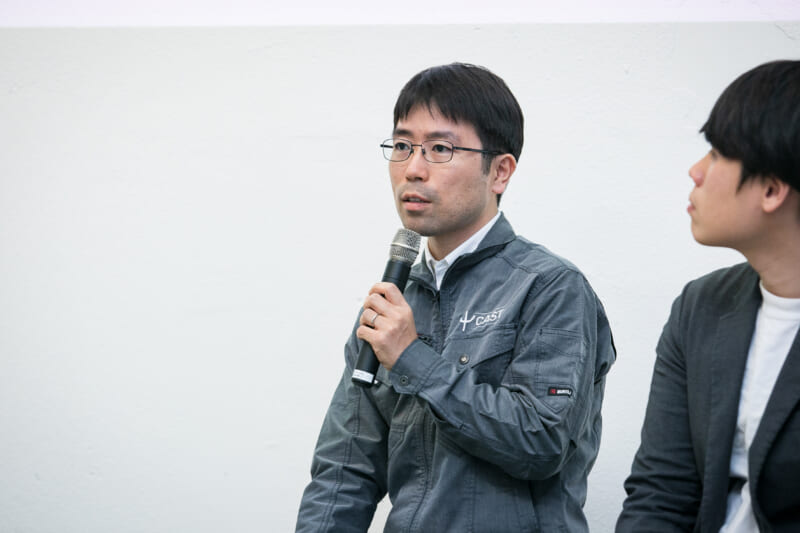
Mr. Kei Nakatsuma President and Representative Director, CAST Co. Born in Tokyo, Japan. D. in Information Science and Technology from the Graduate School of Information Science and Technology, the University of Tokyo. 2012 Assistant Professor at the Graduate School of Advanced Science and Technology, Kumamoto University. 2019 Co-founder and Representative Director of CAST Inc. in September.
Chemical plants are equipped with a large number of piping systems, and as these systems are used, corrosion and wear occur, increasing the risk of accidents. Our "Pipe Thinning Monitoring System" monitors the condition of such piping using our unique ultrasonic sensors.
Piping inspections can be quite costly and time-consuming if carried out by human labor alone. In addition, inspections are difficult in cramped or hot locations. We are trying to solve the problems of the manufacturing industry by helping to save labor, reduce costs, and improve convenience in maintenance through our products.
flatland mound Thank you, Mario from Zip Infrastructure, please.
Mario. We are developing a new type of mobility called "Zippar" based on a ropeway.
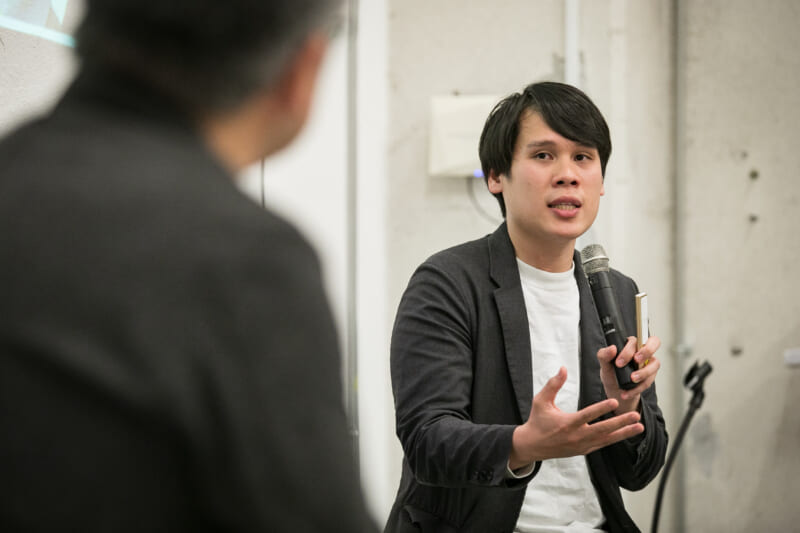
Mr. Levonquin Mario Ian Carlos Ferido President, Zip Infrastructure, Inc. Born in Manila, Philippines in 1997, he came to Japan at the age of 10. After graduating from Aoyama Gakuin University, he worked for Mitsubishi Heavy Industries, where he was in charge of transportation projects such as Yurikamome. He then joined Zip Infrastructure Corporation, where he is currently working on the social implementation of Zippar as COO to alleviate traffic congestion in his hometown in the Philippines.
A normal ropeway is a vehicle in which a rope is attached to a gondola, and the gondola moves by pulling the rope. In the case of our "Zippar," on the other hand, the gondola operates automatically along a fixed rope. The system is similar to a monorail, but it is cheaper and easier to install than a conventional ropeway.
Aims of Expansion into Southeast Asia
flatland mound You all have expanded your business overseas in parallel with your domestic operations. Where have you established your bases? What are your aims for expansion?
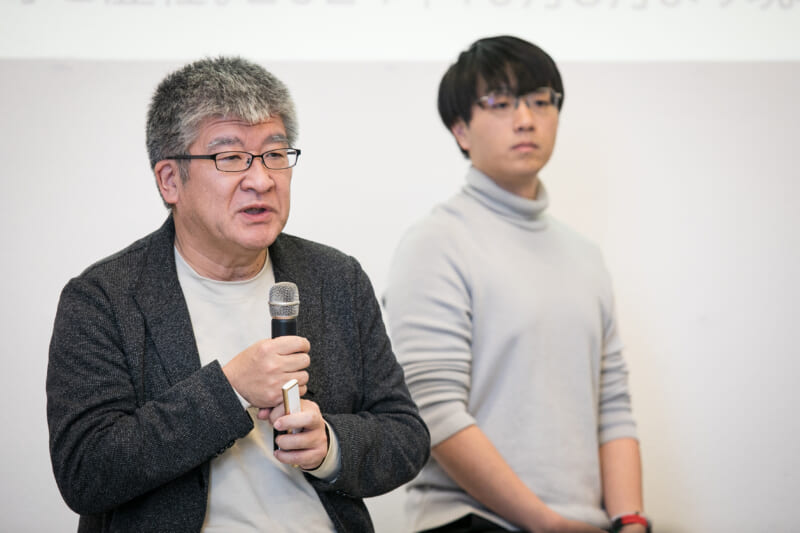
Moderator Mr. Atsuyuki Hiratsuka, Managing Director, Rheos Capital Works K.K. (left image) He joined the Ministry of International Trade and Industry (now the Ministry of Economy, Trade and Industry (METI)) in 1992 and has been in charge of a wide range of economic and industrial policies including trade strategy, regional policy, technology policy, venture policy, financial disclosure system/taxation system, and digital policy. He has been engaged in investment and other strategies from a medium- to long-term perspective.
ancient log storehouse INOCA has established a subsidiary, INOCA Asia, in Malaysia in July 2024. The aim is to approach marine conservation in Southeast Asia. In the triangle that surrounds the Philippines, Indonesia, and Malaysia, you have the "Coral Triangle," the ocean with the most diverse ecosystem in the world.
There, hundreds of millions of people live in close relationship with nature, eating fish that live on coral reefs. We believe that if we invest environmental conservation solutions here, the impact of our business will be very large.
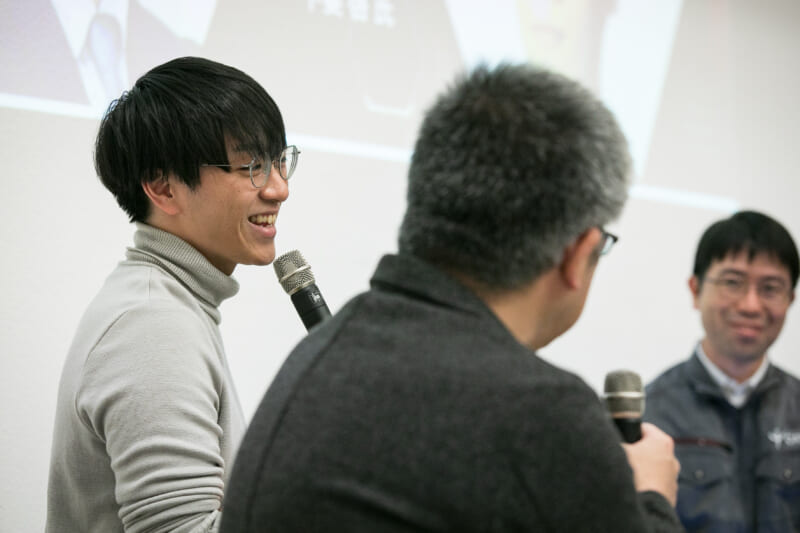
common-law wife Chemical plants are used to some extent to produce chemical compounds in the same way no matter where they are located in the world. Since many parts of the facilities are the same in each country, our maintenance and inspection solutions can be applied directly to various countries. For this reason, we set up an office in Malaysia with the aim of expanding our business in Southeast Asia.
Eventually, we would like to expand throughout Southeast Asia, but first, there is a state-owned oil company called "Petronas" in Malaysia, so we are planning to approach them. We are also receiving support for our overseas expansion from RIVANES, and collaboration with local companies is underway.
Mario. Since I am from the Philippines, we have established a base in the Philippines and are also approaching Malaysia and Thailand. Many countries in Southeast Asia lack transportation infrastructure, and traffic congestion is a major social problem. We decided to expand overseas because we thought "Zippar" would be a solution to this problem.
Infrastructure technology takes a very long time to be implemented in society because of the need to ensure safety and to establish laws. Therefore, although "Zippar" is still in the stage of product completion, we have decided to go to various countries at an early stage to promote our proposal. Currently, we are actively working in the Philippines, and in June 2024,A basic agreement was signed with a local public corporation for the introduction of "Zippar.The following is a list of the most common problems with the
Unexpected events" that we learned about only after we moved in.
flatland mound In expanding overseas, you must have encountered unexpected situations and troubles. Please tell us how you have dealt with these events.
ancient log storehouse What I did not expect was that the local people were not as interested in environmental conservation as I had expected. I had very high expectations for Southeast Asia. I was sure that many people would care about coral reefs and that we would be able to do a lot of work related to environmental conservation, since people in coastal areas live by catching fish from coral reefs.
However, when I actually visited the site, I found that there was even less interest in coral reefs than in Japan. ...... It did not resonate with the locals, especially in the context of environmental conservation.
In Japan, if you push out carbon credits and other measures, companies and governments will cooperate with you and say, "Let's do it." In Southeast Asia, however, they are more pleased if you say, "If we grow coral, the number of fish living there will increase and the catch of fish will rise. So let's protect the environment. I have learned that how much actual benefit is important.
common-law wife We hypothesized that since our maintenance and inspection solutions could be deployed directly to various countries, once we created a good product, we would be able to quickly expand into other countries.
Of course, we were aware that localization was necessary, but when we expanded overseas, the environment was different than we had expected. For example, the communication standards for sensors used for facility inspections had to be technically customized, as each country had its own government-promoted standards. This is something I could not have imagined, or rather, something I really did not understand until I went there.
flatland mound I know that each country has its own standards for plant security levels, but how was it in Southeast Asia?
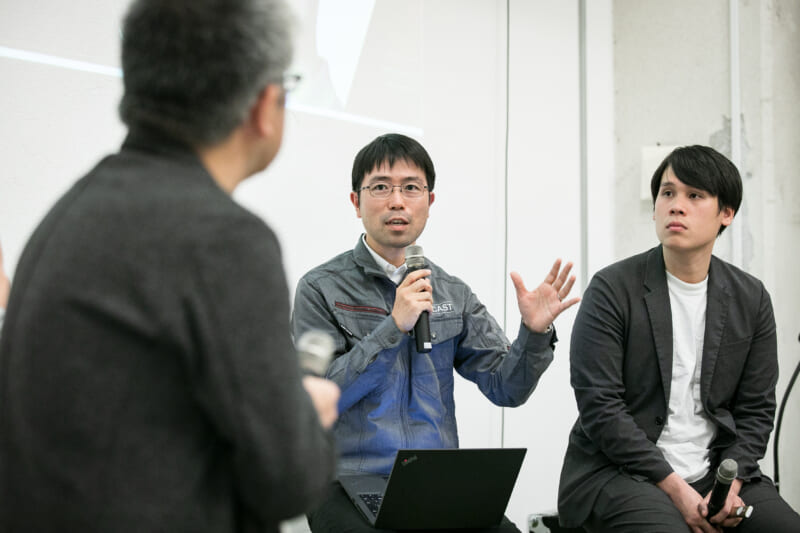
common-law wife There are guidelines that have become global standards, and Southeast Asia also follows those standards. Southeast Asian countries tend to follow global standards, so localization was easy.
flatland mound What about Zip Infrastructure? Since this is an area related to transportation infrastructure, there are going to be a lot of traffic rules and laws to worry about.
Mario. The gap we noticed was in the accuracy of the traffic data. Zippar" is sometimes used for public transportation, and we sometimes conduct surveys to determine where to place stations, how much it will cost, and how many users we can expect per year. The accuracy of the data used as reference at this time differs between Japan and other countries.
Japanese traffic data is very accurate and practical because the data is used for clearly defined purposes, but overseas, the accuracy of some of the data is crude. For example, there was a case in which the data showed that there were 10 million users per year at a station that was obviously sparsely used.
flatland mound Traffic data is surveyed in different ways in different countries, and there may be an issue of accessibility to the data itself.
Early consensus-building" is the key to success.
flatland mound Expanding overseas is a costly decision. Have there been any hurdles or challenges you have faced in expanding overseas, such as opposition from stakeholders due to resource constraints?
common-law wife We have raised funds from VCs and business companies, but there was not much opposition to our overseas expansion. This is because we had written about overseas expansion in our business plan, so we were able to reach a consensus.
To begin with, there are only 20 refineries in Japan. We have repeatedly shared with our stakeholders that the market is too small for Japan alone, and that it would be better to expand overseas if our know-how could be horizontally deployed.
Mario. Our company is also aware that our products are more readily accepted overseas due to their characteristics. Also, like CAST, we clearly stated in our business plan that we would expand overseas, so we were in a state of consensus. We have also obtained government subsidies, but we clearly stated our overseas expansion in the application for those subsidies, rather like creating a situation where we need to expand overseas as part of the subsidized project.
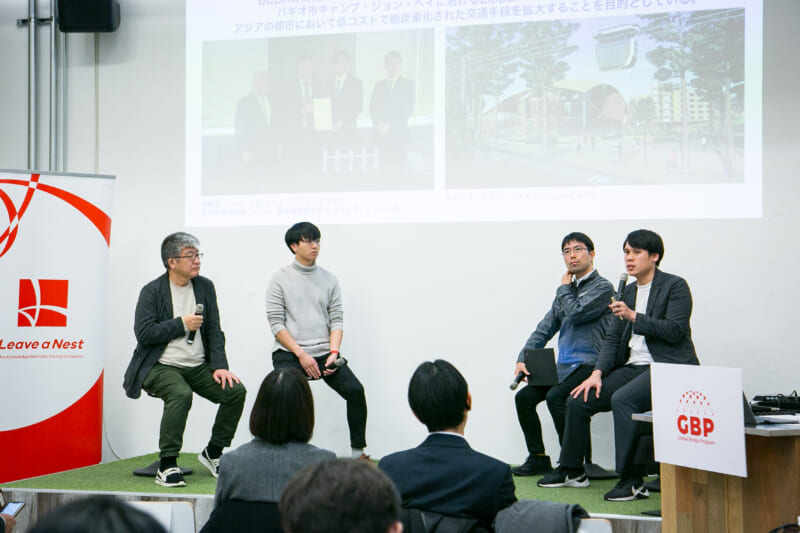
flatland moundIt is true that if a consensus is formed prior to the overseas expansion, there will be no halt in the process. It is also important to take the initiative. How about you, Mr. Takakura?
ancient log storehouse In our case, we are a young company with an average age of 28, and we are still in the process of developing our management structure. We were pointed out that it is not really possible to establish an overseas subsidiary under such circumstances and manage people from different cultures. In addition, we have also been asked to "establish aAs is standard practice for venture companies, why don't they try overseas after they have achieved a niche position in Japan? Some of the participants also expressed their opinions.
I took those opinions into consideration and decided that this was the only time to expand overseas. To be honest,Although I sometimes felt that I had expanded the front too far, fortunately I was not seriously injured. It was a good opportunity for me to learn about my own capabilities, and I gained valuable primary information that I would not have been able to obtain without actually advancing into the area.
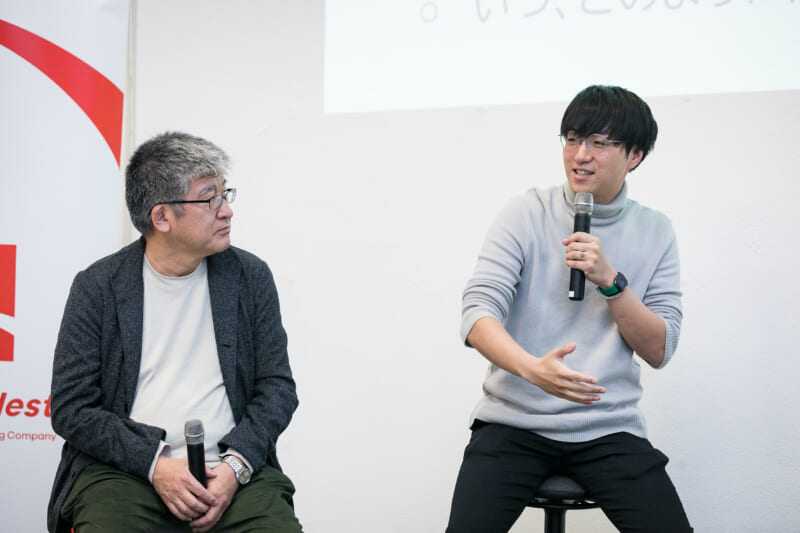
flatland mound Expanding overseas involves a certain degree of risk. It is important to be willing to learn from unexpected problems while acting to avoid serious injury.
What kind of support do deep-tep ventures really want?
flatland mound Next question. There are various forms of support for expanding into overseas markets, such as support from the private sector and from various ministries and agencies. After actually trying your hand overseas, do you have any ideas for "what kind of support would be good for people who are going to expand overseas"?
ancient log storehouse I think support for administrative procedures is essential. When establishing an overseas subsidiary, you have no idea what documents you need and what procedures you need to follow. In that sense, our company was helped by Liberace, and they were very helpful. Procedures are sometimes omitted, so it would be very helpful if they could tell us about the necessary paperwork and what we need to do locally.
common-law wife The first is "a partner who is familiar with the regulations of a specific area. A domain-specific business such as ours must develop products while taking into account the regulations and laws of specific industries. If we could work with a government agency or organization that is familiar with such regulations and laws, we feel that we would be able to proceed with our business more smoothly.
The second is "contract support. The customs surrounding contracts are quite different between Japan and other countries. For example, in countries where the legal system is relatively less developed, the government has a great deal of discretion, so it is necessary to proceed with caution when concluding contracts, such as setting the governing law. If we could share tips on such contract-related matters, we would be able to expand our business overseas with peace of mind.
Mario. I wanted a "support menu that can be received even at the seed stage. Most overseas expansion support for venture companies is only available when the product has already taken shape to some extent and the company has a proven track record. I would like to see a system that provides support for overseas expansion and subsidies even at the seed stage, when the company has an idea but no product.
In the mobility field, which we deal with, it inevitably takes time to complete a product. There is a time lag between the time the product is actually used by the client and the time it is tuned for the local market.
We take prototypes overseas at an early stage to get feedback from our clients, but I think that if we could pick up overseas needs before that stage, it would be easier to utilize them in our development.
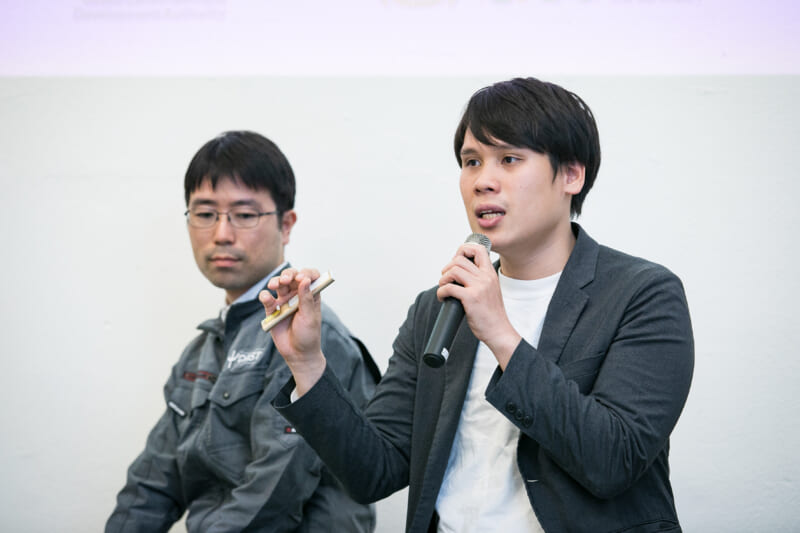
flatland mound It is very informative to hear from people who have actually advanced into overseas markets. We hope that those who support venture companies in their overseas expansion will take realistic reports of their activities and formulate a support plan.
The value of "primary information" that cannot be seen without going abroad
flatland mound As the time to end is approaching, please give some final advice to those ventures that are about to enter the overseas market.
ancient log storehouse I still think that the timing of expansion should be seriously considered. Based on the phase of the business and the trends in the world, should we establish some ground in Japan or, on the other hand, should we act immediately because there are opportunities overseas?
In the case of our company, I think the timing was right, considering that environmental conservation awareness is gradually being fostered around the world and will finally penetrate Southeast Asia in the future. At universities in Malaysia, the trend of students' research is now heavily focused on environmental conservation. There are many local researchers who are working to extract and utilize ingredients from seaweed, and I see this as an opportunity to get them involved.
flatland mound What about Nakatsuma-san?
common-law wifeIn any case, I think it is important to go out and get primary information. Even if it is just a bit of marketing research, the primary information obtained overseas will be very useful later on.
CAST is open to the possibility of withdrawing from overseas business depending on circumstances. But if we do withdraw, we believe it will not be in vain. If we have information about the process of expansion, the resources that were needed, and the factors that made it unsuccessful, we will be more persuasive in our business plan the next time we receive investment.
flatland mound Mr. Takakura was talking earlier.When the unexpected happens, we act to avoid serious injury and turn it into a learning experience."This leads me to the next point. Anyway, I think it is very important to go abroad and learn primary information there.
Mario. In that respect, I think we could have expanded overseas a little earlier. Even if we do encounter some pain, it is a positive thing to gain knowledge of the market as quickly as possible. If we don't succeed overseas, we can choose to concentrate on the domestic market.
flatland mound This is not limited to overseas expansion, but I believe that ventures that have just begun operations often fail to proceed as expected. If they suffer a serious injury, they will not be able to recover, so I thought that if there was a cushion to prevent injury, it would make it easier for ventures to take on new challenges.
The Global Bridge Conference will be a good opportunity to learn about the concerns and activities of venture companies, and if we can organize the examples gathered and make them into collective knowledge, we will be able to play a cushioning role.
I would like to thank Mr. Takakura of Inoka, Mr. Nakatsuma of CAST, and Mr. Mario of Zip Infrastructure for their valuable talks.
